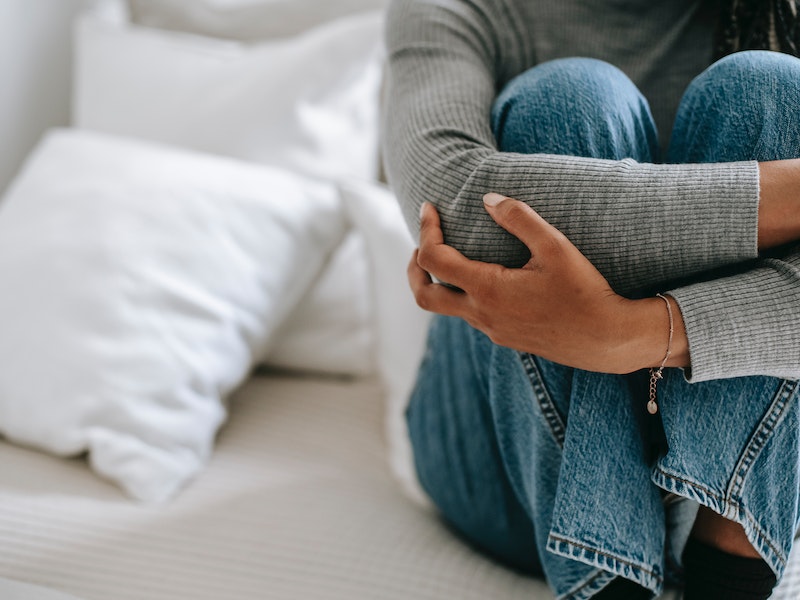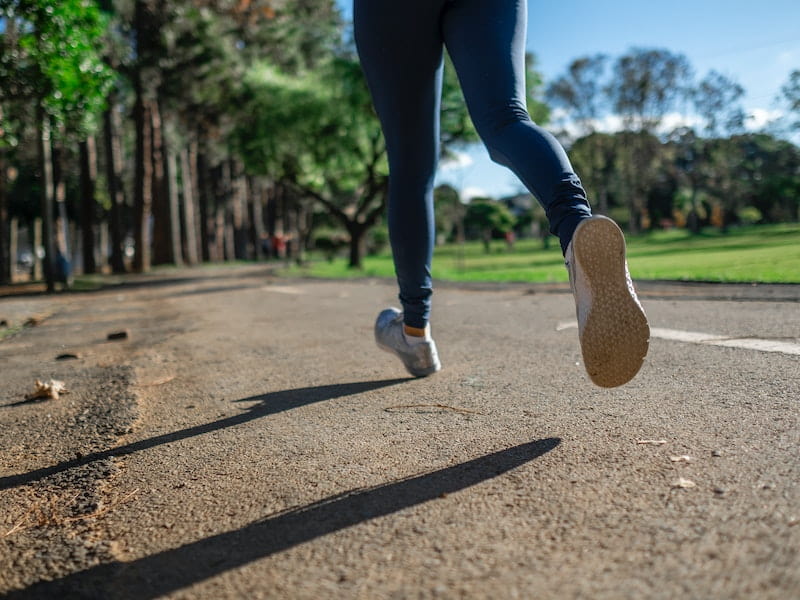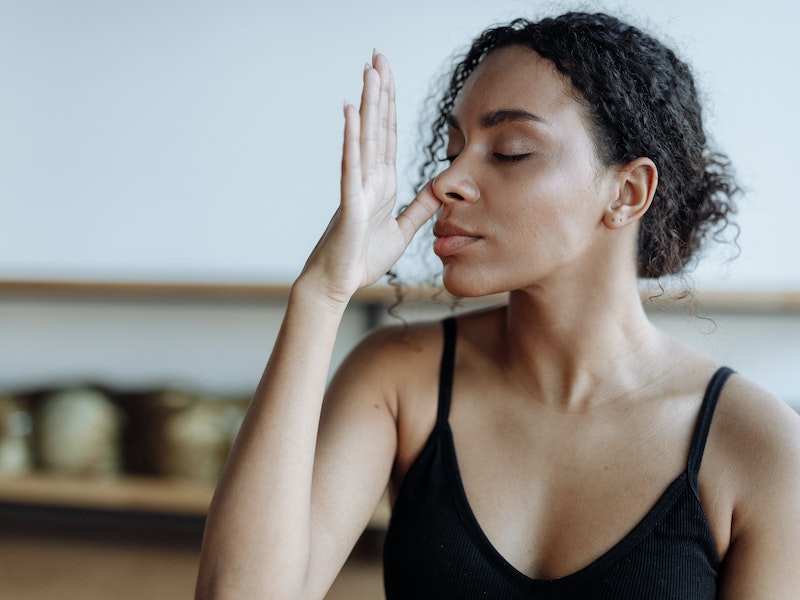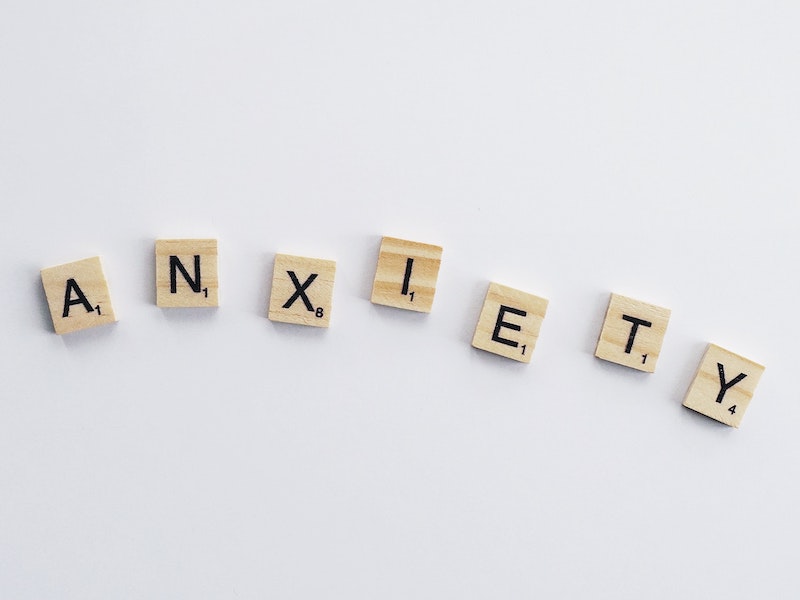Heart pounding, shallow breathing, insomnia, nausea on unimaginable levels. That’s what anxiety attacks usually feel like. As someone who’s been living with anxiety for two decades, it’s a familiar feeling that I grapple with every now and then whenever my worries threaten to spiral out of control. Over the years, I’ve come to accept that although you can’t control anxiety, you can control how you react to it—and that’s a good place to start if you’re trying to figure out how best to calm down or stop your anxiety attack. But before I get down to the coping methods that work for me, let’s quickly run through the ABCs of an anxiety attack.
Note: The advice below is purely based on the author’s personal experience. If your anxiety attacks are interfering with your daily life, consider reaching out to a mental health professional for help.
What Is An Anxiety Attack?

An anxiety attack is a sudden and intense fear or worry triggered in anticipation of a particular event or threat. According to Mayo Clinic, it can be prompted by a number of causes, including:
- Stress
- Past trauma
- Underlying health issues or certain medications
- Other mental health disorders
- Certain personality types
- Having blood relatives with an anxiety disorder, or
- Use or misuse of drugs or alcohol.
What Does An Anxiety Attack Feel Like?
Although anxiety is typically felt in daily life, having an intense form of anxiety for a prolonged period of time—anywhere from several minutes to weeks on end—is considered an anxiety attack. An episode can involve a combination of the following symptoms:
- Worrying about the past or future
- Feeling nervous, restless, or tense
- Feeling lightheaded or dizzy
- Breathing rapidly or hyperventilating
- Sweating
- Having hot flushes
- Feeling nauseous
- Experiencing fast or irregular heartbeat
- Having trouble concentrating, or
- Not being able to sleep.
Tips On How To Calm Down Or Stop An Anxiety Attack
Experiencing regular anxiety attacks can disrupt your daily life. But learning how to calm yourself down in the midst of one can help you move on quicker. Through the years, I’ve found these six tips and tricks particularly useful for me.
1. Stay Active

Exercise isn’t just for maintaining your physical health, it’s also one of the keys to keeping your mental health in check. It triggers the release of feel-good hormones, like serotonin, which boost your mood and protect you from developing anxiety symptoms. And the simple fact is, engaging in exercise can divert your attention away from the very thing you’re anxious about.
Looking back, the year I was most active was also the year that I had the least panic attacks. I found running at the neighbourhood park an easy and cost-effective way to get the heart pumping and keep a clear mind. Committing to year-long HIIT classes with friends also meant that I was getting a weekly dose of serotonin and social support. If you prefer low-impact activities, swimming, Pilates, and yoga are great alternatives.
Related: 10 Exercise Equipment You Need To Build Your Own Home Gym
2. Talk To Yourself
Having an anxiety attack sometimes means spiralling into an abyss of self-doubt and exaggerated worries. A helpful way on how to calm down anxiety attacks like these is by verbalising positive affirmations. That means constantly reminding yourself that you’re going to be okay. After all, anxiety attacks may feel scary, but they can’t actually harm you.
If nothing else, recounting the people or things that I am grateful for has a grounding effect on me. That, or asking myself, ‘What’s the worst that could happen?’ Oftentimes, accepting that the reality isn’t as bleak as the picture I’ve painted in my mind can help me take back control of my thoughts.
3. Practise Breathing Exercises

I also find deep breathing an easy and discreet method to keep full-blown anxiety attacks at bay, whether I’m at home or in social situations. It’s as simple as inhaling deeply and exhaling slowly, but it works to lower the heart rate and increase the supply of oxygen to the brain. This, in turn, promotes a sense of calm and relaxation.
The NHS recommends breathing in deeply through your nose for 5 seconds, then breathing out gently through the mouth for 5 seconds. Keep doing this for at least 5 minutes.

When I’m on the verge of an anxiety attack, I find talking to close friends or loved ones about what’s causing my anxiety cathartic. Moreover, negative thoughts can distort the severity of a situation, so hearing someone else’s perspective can help me change the way I view my worries.
Of course, if you know a friend who has an anxiety disorder just like you, they’ll be able to offer better support and advice on how to calm down or stop an anxiety attack.
5. Break Down Problems Or Worries

Whenever I’m uncomfortable with talking to others, a more introspective way on how to calm down or stop an anxiety attack is by exploring my worries through writing.
I would grab a notebook or simply a pen and paper, and write down my concerns. By breaking them down into smaller chunks and figuring out solutions, those problems would usually feel a lot more digestible and much less overwhelming.
6. Let A Few Trusted People Know
If you’re at a public or social event, knowing how to calm your anxiety down on your own isn’t always easy. What I do, in this case, is to tell a few trusted friends that I regularly suffer from anxiety attacks and let them know what would make me feel better if I had a bout. They may be able to talk me through the situation or get me to a quiet spot until my anxiety winds down.
You Can Learn How To Calm Down Or Stop Your Anxiety Attacks, But Seek Professional Help If You Need To

If your bouts of anxiety are negatively impacting your quality of life and you’re no longer sure how best to calm down your anxiety attacks, it’s advisable to seek help from a mental health professional sooner rather than later. It’s a long-term solution, as experts can work with you to determine your triggers, equip you with proper coping skills and, if necessary, prescribe medication to prevent your anxiety from growing worse.
If your busy schedule doesn’t permit you to attend physical therapy sessions, consider these professional online therapy services. In between sessions, try living a more mindful life with these simple exercises.
